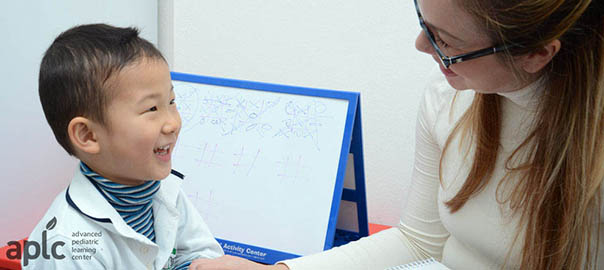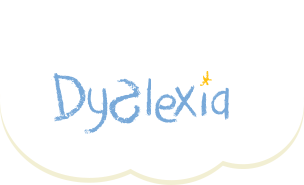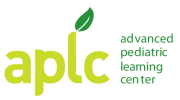Speech-Language Pathology

Therapy may include:
- Articulation
- Fluency
- Voice and resonance, including respiration and phonation
- Receptive and expressive language (phonology, morphology, syntax, semantics, pragmatics, prelinguistic communication and paralinguistic communication) in speaking, listening, reading, writing
- Hearing, including the impact on speech and language
- Swallowing (oral, pharyngeal, esophageal, and related functions, including oral function for feeding, orofacial myology)
- Cognitive aspects of communication (attention, memory, sequencing, problem-solving, executive functioning)
- Social aspects of communication (including challenging behavior, ineffective social skills, and lack of communication opportunities)
- Augmentative and alternative communication modalities
Services for speech and language concerns can be evidenced in any of the following areas at the word, sentence and discourse level: Articulation, Voice, Fluency, Phonology, Morphology, Syntax, Semantics, and Pragmatic
Speech and language services are provided by Native English and Turkish Speech-Language Pathologist.
Our speech therapists are internationally trained either from the United States of America or Canada. Please see “Our Speech Therapists” for more detailed information.
Areas of specialty include providing contextualized speech-language intervention for students experiencing listening, reading, speaking, and writing difficulties due to speech-language processing concerns and speech-language delays. Integration of academic language demands into the intervention process facilitates language literacy success at the early childhood to high school levels. Speech therapy services for improving articulation skills include concerns related to developmental speech disorders, phonological speech disorders as well as apraxia of speech. Services for speech fluency disorders are also available.
In addition to serving students with language-based learning disabilities related to auditory processing, receptive and expressive language concerns, areas of special interest include phonological awareness and related language based reading development for students exhibiting difficulty with developing language literacy skills.
Also an area of expertise is pragmatic language intervention for those diagnosed with Non-verbal Learning Disabilities, Asperger’s Syndrome, and Autism Spectrum Disorders. Social communication intervention for student experiencing pragmatic language concerns focus a great deal on perspective taking and on developing the metalinguistic skills important to communication success. Social Communication groups are offered with specialization in serving students with average to above average cognitive abilities and those without significant behavioral concerns. Purposeful Play groups for younger children address development of pivotal skills for the acquisition of language and early conversational functioning.
Metacognitive strategies are an important component to intervention and include direct instruction in learning strategy approaches that are appropriate for students at an advanced language level in order to teach planning and self-evaluation skills important for comprehension monitoring, written language development, and regulation of social communication.
School-based and office-based therapy is available, as well as in home programming for infants and toddlers. Collaboration among parents, educators, and special service providers is an important component of therapy and reflects our philosophical belief that “teaming” is a key to long-term success. Consultative and school in-service presentations are also available.

